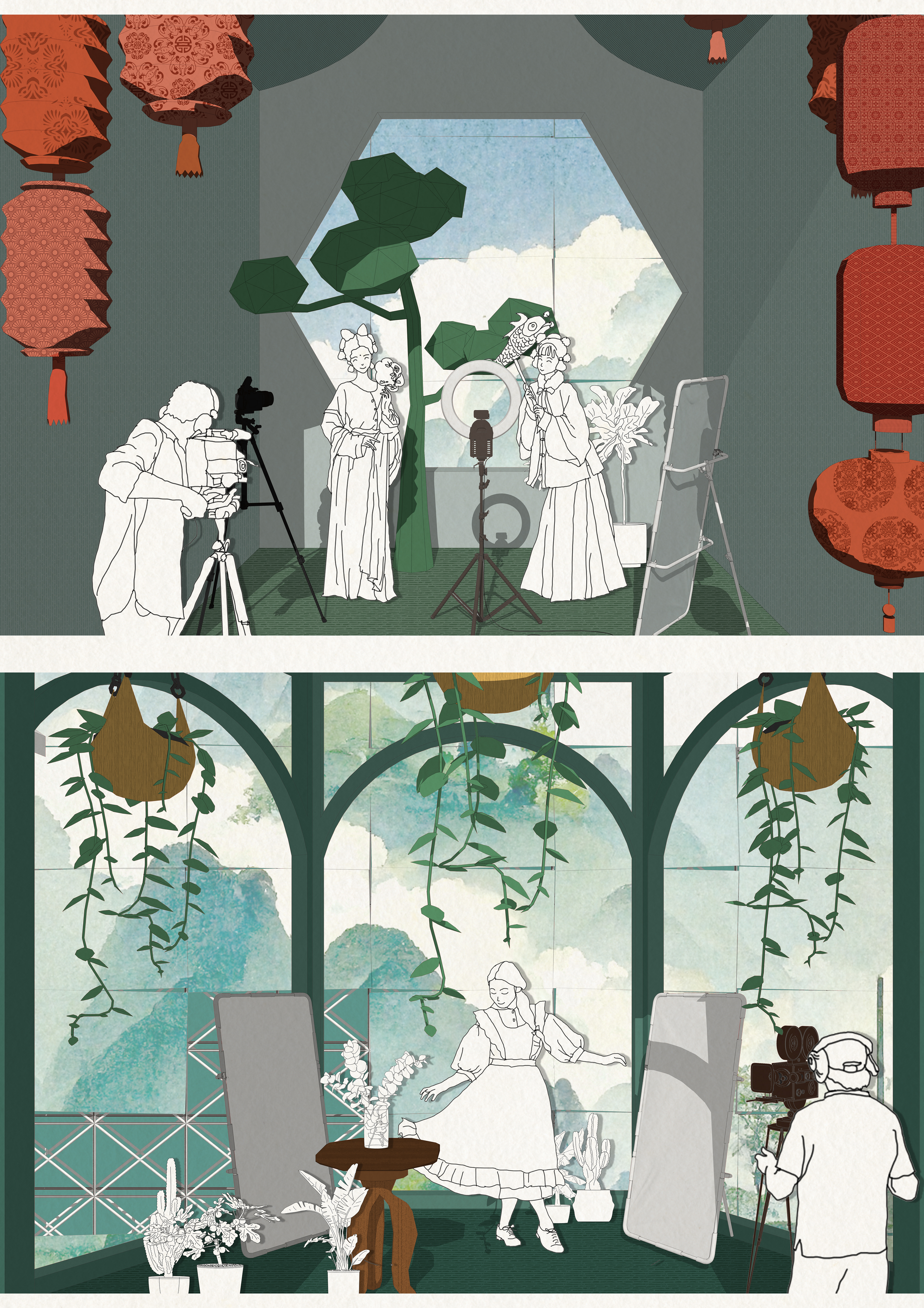(Rural) Wonderland
Instances of Domestic Counterurbanisation
in the Age of the Planetary City
in the Age of the Planetary City
Supervisor: Manfredo Manferdini
This thesis explores the ever-changing relationships between rural and urban identities and speculates on the future of the (de)commodification of the urban–rural dichotomy. The COVID-19 pandemic has stimulated a resurgence in counterurbanisation worldwide, prompting many urbanites to consider escaping from the urban environments that they live in. Although counterurbanisation can be seen as an escapist reaction to the alienation/desynchronisation of urban life, the author argues that it does not simply refer to a migration pattern of urbanites moving to rural areas. Rather, counterurbanisation is a complex process that involves the re-appropriation of bucolic elements and a form of cultural consumption of rural life through images and products.
The presentation of rural life as a utopian, nostalgic and idealised condition is used to promote the authenticity of commercial activities, such as bucolic property developments and pseudo-natural products. The research is underpinned by three distinct key paradigms: Li Ziqi’s multi-platform video productions, Taobao villages’ prosperity, and Countdown Bricks Farm, which are analysed through the lens of planetary urbanisation, the spectacle, and simulacra theories. These paradigms are interpreted as an ambivalent process, where the reappropriation of bucolic elements is countered by a form of cultural consumption of ‘rural life’ through images and products. This thesis explores how the rural–urban dichotomy is used to validate the authenticity of commercial activities and perpetuate the pastoral ideal.
This thesis proposes the exploration of a speculative architectural world that acknowledges counterurbanisation with simulated domestic instances; it is an ongoing exploration into how the bucolic perceptions of the rural can be architecturally examined, scrutinised, and redefined. The final design proposition, (Rural) Wonderland, is a series of speculative drawings that represent thematic spaces through the deployment of architectural narrative. The design of (Rural) Wonderland acknowledges counter-urbanisation with simulated domestic instances, redefining the commodification and production of the bucolic ideal spatially.
Overall, this thesis offers new insights into the complex relationship between rural and urban, the commodification of the bucolic ideal, and the resurgence of counterurbanisation. It aims to challenge and critique the existing paradigms of counterurbanisation and to generate new narratives and understandings of the bucolic realm.
Conceptual Collages
Cottagecore Dreamscapes
WindStream Media Mill

Li Ziqi’s Tulou Stage